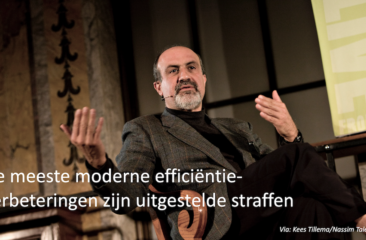Roger McNamee, één van Facebook’s vroege investeerders en voormalig mentor van Mark Zuckerberg, waarschuwt in een recent artikel in Washington Monthly voor de schadelijke en mogelijk onomkeerbare effecten van met name Facebook en Google op de samenleving. Als voorbeeld noemt hij de invloed van Rusland via filterbubbels en algorithmen op de Amerikaanse verkiezingen en het Brexit-referendum in de UK. Samen met Tristan Harris (oa Time Well Spent) stelt hij dat we weerstand moeten bieden tegen de door filterbubbles gecreerde feiten en dat de CEO’s van Facebook, Google, Twitter en anderen zich publiekelijk moeten verantwoorden. McNamee en Harris komen vervolgens met een 8-tal suggesties ter verbetering van platformen als Facebook en Google:

- It’s essential to ban digital bots that impersonate humans.
- The platforms should not be allowed to make any acquisitions until they have addressed the damage caused to date, taken steps to prevent harm in the future, and demonstrated that such acquisitions will not result in diminished competition.
- The platforms must be transparent about who is behind political and issues-based communication.
- The platforms must be more transparent about their algorithms. Users deserve to know why they see what they see in their news feeds and search results.
- The platforms should be required to have a more equitable contractual relationship with users.
- We need a limit on the commercial exploitation of consumer data by internet platforms.
- Consumers, not the platforms, should own their own data. In the case of Facebook, this includes posts, friends, and events—in short, the entire social graph.
- We should consider that the time has come to revive the country’s traditional approach to monopoly.
Absolute must read!




1 reactie
Silicon Valley is engineering your phone, apps and social media to get you hooked, says a former Google product manager. The following script is from a 60 Minutes segment on “Brain Hacking” which aired on April 9, 2017:
https://www.cbsnews.com/news/brain-hacking-tech-insiders-60-minutes/